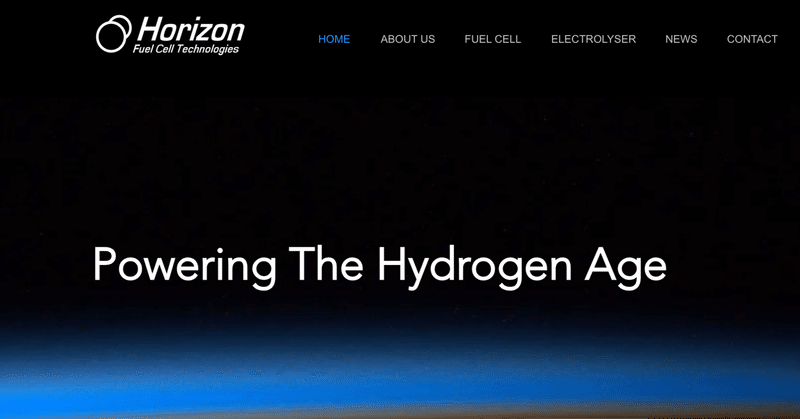
Horizon 世界初の自立型燃料電池会社
世界初の自立型燃料電池会社
ホライズンの創業ストーリーは、好奇心、野心、そして最も困難な技術領域で前進しようとする意欲を原動力とし、あらゆる困難を乗り越えて成功を収めたものだ。
90年代後半、イーストマン・ケミカルズの国際的なテクノロジー・ベンチャー部門とイノベーション・チームのコーポレート・チームとしてすでに活動していた上海オフィスのジョージ・グーとイーストマンのパートナーたちは、世界初の収益性の高い燃料電池会社を設立するというミッションのもとに力を合わせた。
技術にとらわれず、商業的な観点に重点を置いた彼らの野心は、政府の補助金や何十億ドルもの民間資本に頼ることなく、持続可能な脱炭素化目標を達成すること、そして何よりもまず、この30年間一度も黒字を出したことがなく、まだ突破口にはほど遠い業界に、世界初で唯一の黒字を出す燃料電池会社を作ることだった。
創業チームは2003年にシンガポールをグローバル本社に選び、3段階の商業化ロードマップを打ち出し、技術コストを下げ、古くからある水素供給の障壁を取り除いた。同社の主な成功要因のひとつは、より大型で複雑な製品に備える一方で、物流の障壁を減らすため、極少量の水素で機能する小型でシンプルな製品から商業化を開始することだった。
その結果、事業エンジンを始動させ、より複雑な製品にプラスのキャッシュフローを再投資する機会が生まれるのであれば、当初は製品や市場が何であるかは問題ではなかった。
Horizon's founding story is a testament to curiosity, ambition, and the determination to advance in the challenging technology space of fuel cells. Co-founded by George Gu and his partners at Eastman Chemicals in the late '90s, Horizon aimed to be the world's first profitable fuel cell company. With a technology-agnostic and commercial focus, they sought sustainable decarbonization targets without depending on government subsidies or substantial private capital. In 2003, Singapore became the global headquarters for Horizon. The company's strategy included a three-phase commercialization roadmap, reducing technology costs, and overcoming hydrogen supply barriers. Their approach began with small, simple products requiring minimal hydrogen, facilitating logistics while laying the groundwork for more complex future products. This innovative strategy allowed Horizon to generate positive cash flow, reinvesting in progressively advanced products, marking a significant achievement in an industry that had not seen profit in three decades.
この記事が気に入ったらサポートをしてみませんか?
